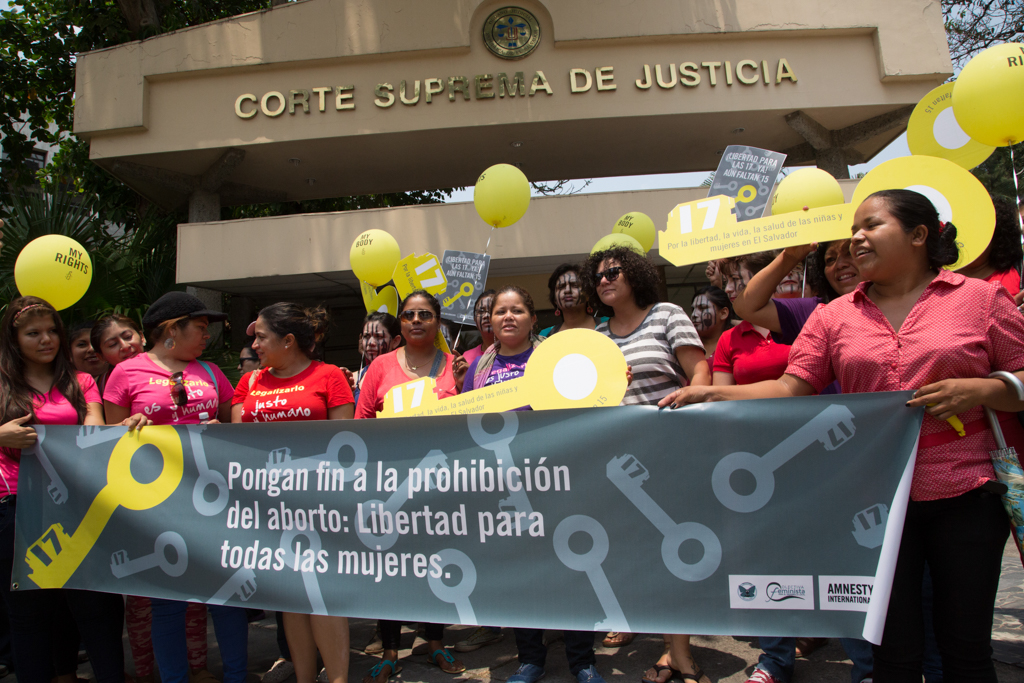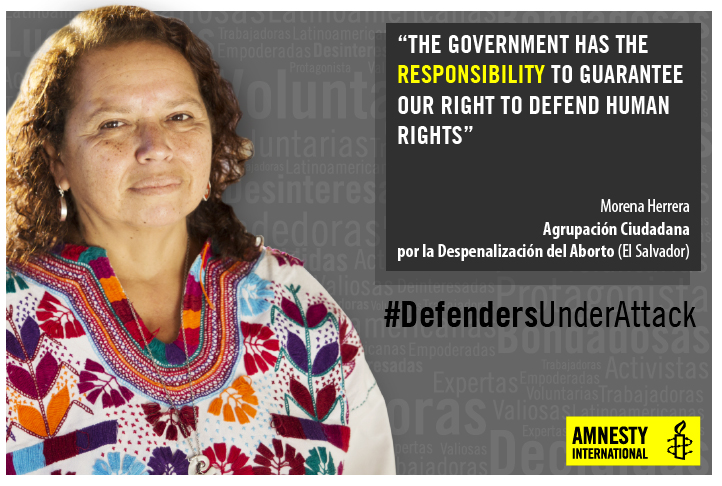Sexual and reproductive rights are the golden ticket that “allows a person to express their sexuality and reproduction in a full and autonomous way”.
Human rights defenders in Latin America are at a heightened risk of hate crimes such as murder, death threats, and violence according to a recent report by Amnesty International. They also experience a frequent misuse of the criminal justice system and discrimination. However, defenders of sexual and reproductive rights (SRR) are among those at the highest risk due to questions around sexuality, abortion and sex education still being highly tabooed across the region.
It may seem like you need a degree in acronyms to understand what SRR are, what SRR defenders do, and why this is such a risky business. Luckily, the IPF could turn to Ariadna Tovar, a researcher on human rights defenders with Amnesty International Mexico and the coordinator behind the aforementioned report, ‘Defenders Under Attack: Promoting Sexual and Reproductive Rights in the Americas’.
“Sexual and reproductive rights and human rights are basically the same”, Ariadna explained. “They are rights which allow any person to make decisions [about their bodies]. They allow any person to access services which help them make decisions about their sexuality and reproduction.”
These services include sex education, family planning and treatment for HIV and STIs. SRR recognise a woman’s right to undergo a safe pregnancy, to not die during childbirth or from not having access to safe abortion services. They ensure everyone’s right to choose their sexual partners, spouse, and to not suffer from sexual violence. These rights and services are the golden ticket that “allow a person to express their sexuality and reproduction in a full and autonomous way”.
“Sexuality and reproduction continue to be taboo issues in Latin America. Consequently, for the people who promote a human rights-based vision of sexuality and reproduction, a vision which doesn’t necessarily coincide with traditional views, violence against them increases and becomes more complex.”
Amnesty International’s report is based on case-study interviews with SRR defenders from across Latin America and highlights the key issues they and their respective organisations face. Whilst the difficulties SRR defenders are confronted by are similar to those facing other human rights defenders, Ariadna confirmed that defending SRR comes with an added layer of complexity.

Women’s rights activists outside El Salvador’s Supreme Court on the day Amnesty International and Agrupacion Ciudadana por la Despenalizacion del Aborto presented over 300,000 petitions calling for the decriminalisation of abortion. / Photo Courtesy: Amnesty International and Edgar Romero
These complexities are heightened when high levels of violence against women are added into the mix. Ariadna said that, in 2013 alone, more than 70 women were murdered by their ex-partners in the Dominican Republic – a country with a population of just 10 million. Compare this with the United Kingdom’s 2013 figure – 86 women out of a population of over 60 million – and the problem is clear.
Levels of violence against LGBTIQ+ people are also consistently high, especially in Central America, with around 541 attacks recorded in the region in 2013. Ariadna explained:
“All these factors intersect to generate a cultural climate that enables violence. Women are still a population whose right to make decisions over their bodies is restricted.”
The implications of SRR abuses disproportionately affect women and LGBTIQ+ people. “Women are still a population whose right to make decisions over their bodies is restricted, an example of this being abortion, where legislation [in Latin America] often bans the practice, even in cases where it could save a woman’s life,” Ariadna noted.
Abortion, whilst legal in many countries of the region, is heavily restricted. In countries where abortion is illegal, punishment is harsh. Ariadna explained that in El Salvador, women can be sent to prison for up to 30 years if they have a miscarriage or an obstetric emergency. LGBTIQ+ people also tend to have their rights restricted, such as the right to decide who to fall in love with, as well as who to have sexual relations with.

Morena Herrera is one of the SRR defenders featured in Amnesty International’s report. In El Salvador, the country where she works, women can be sent to prison for up to 30 years if they have a miscarriage or an obstetric emergency. / Photo Courtesy: Amnesty International and Richard Burton.
In addition to revealing the sustained nature of violence against SRR defenders, the report exposes the unwillingness of governments to either respond to violations, or to formally recognise the work of SRR defenders, who are frequently subjected to media smear campaigns that go unchallenged by state officials. In one case in El Salvador a media report compared a civil society group to witches for their work defending imprisoned women for having undergone abortions following obstetric emergencies. Ariadna explained why this is a problem:
“This type of stigmatisation is a catalyst for social criminalisation. This means that when the authorities don’t impose sanctions against those attacking SRR defenders, the attacks and violence increase.”
“We want recognition: recognition of the important work SRR defenders do, recognition that they work to defend human rights.”
Moreover, the report highlights an increase in attacks specifically designed to intimidate SRR defenders. It charts the now well-known case in Paraguay, where a ten-year-old girl became pregnant after being raped by her stepfather. The child’s family requested an abortion in order to save her life and preserve her health, and were supported throughout by civil society organisations. Representatives of those organisations were under constant threat. They found evidence of malware in their computers and Elba Nuñez, the chief defender, was harassed in public and threatened over the phone.
“The most shocking thing is that we are caught up in such high levels of violence against SRR defenders,” Ariadna said.
“If states don’t stop them in time or put in place measures to protect them, these attacks will keep increasing. The message they are sending to perpetrators is that they can keep attacking SRR defenders without any legal consequences.”
When asked what Amnesty International was hoping to achieve through this report, Ariadna stressed the importance of recognition.
“We want recognition: recognition of the important work SRR defenders do, recognition that they work to defend human rights. […] the work they do to ensure the rights of everyone is important and it deserves support and respect.”
**Featured image courtesy of Amnesty International/Prometeo Rodríguez Lucero.

